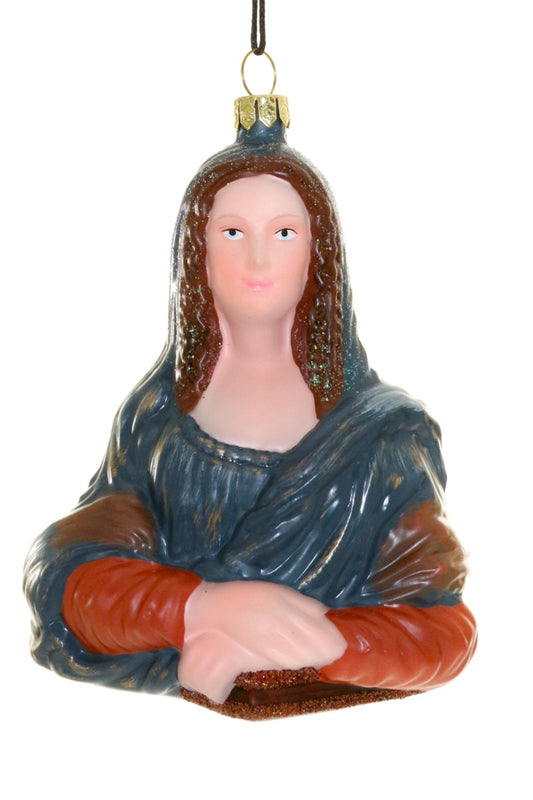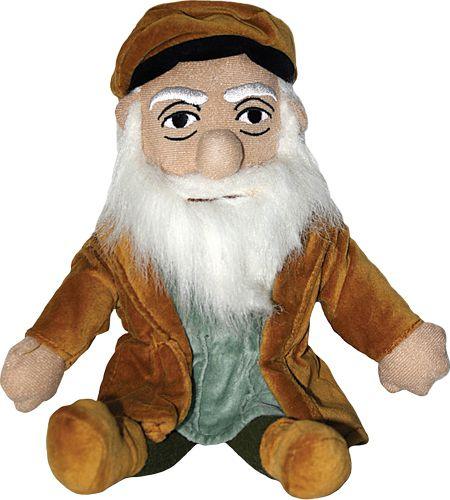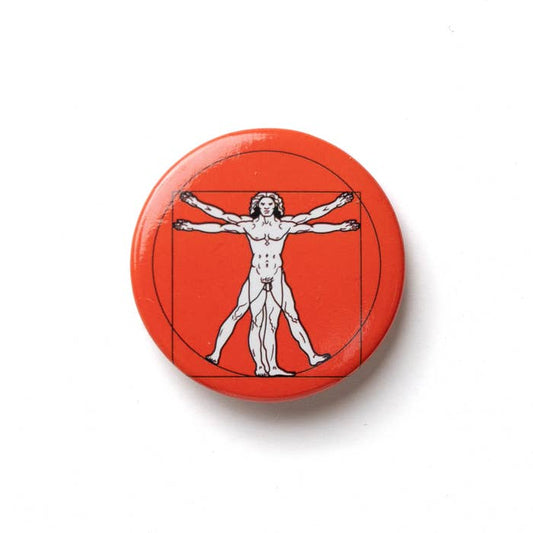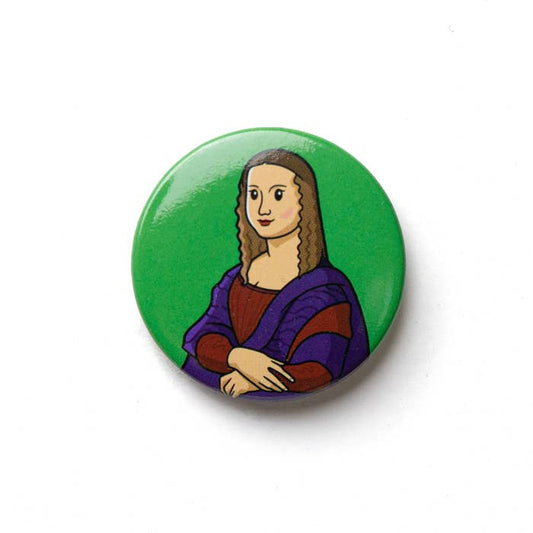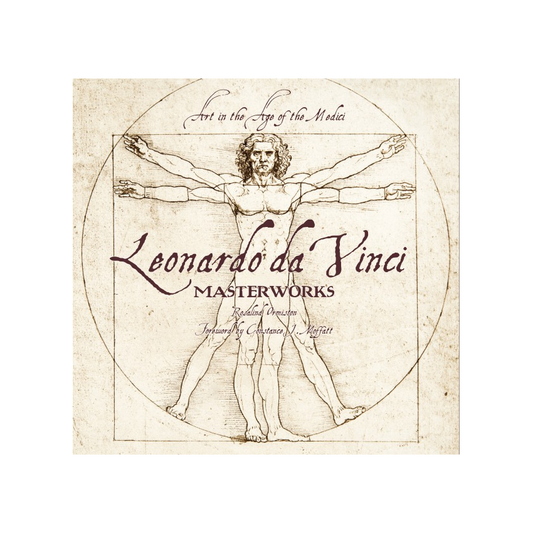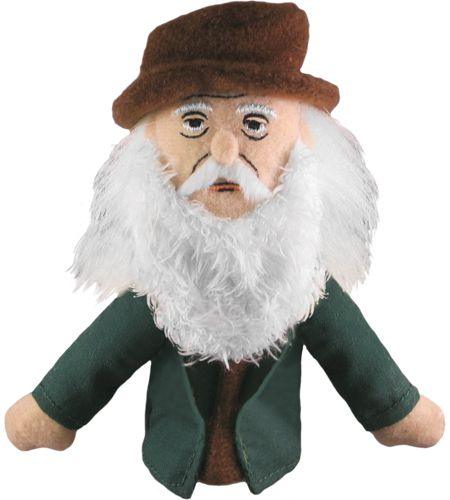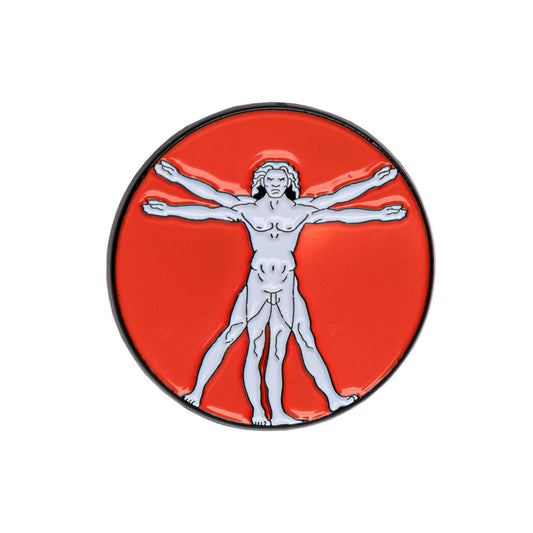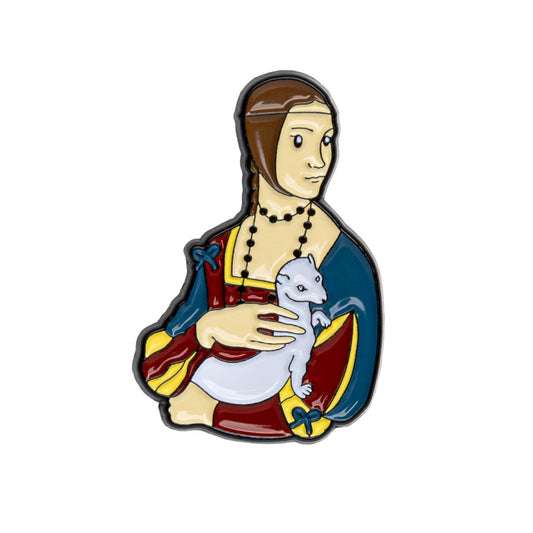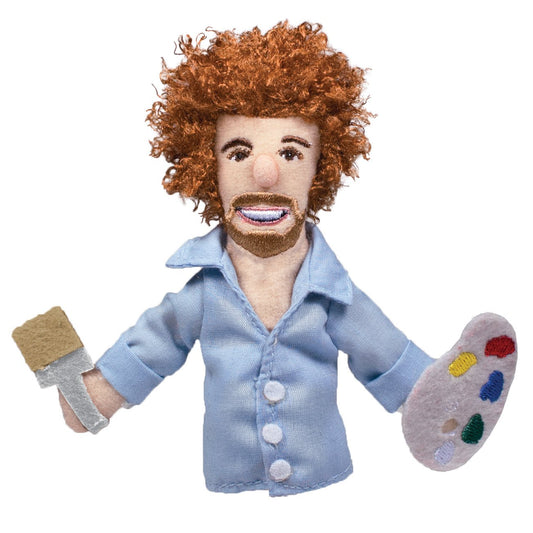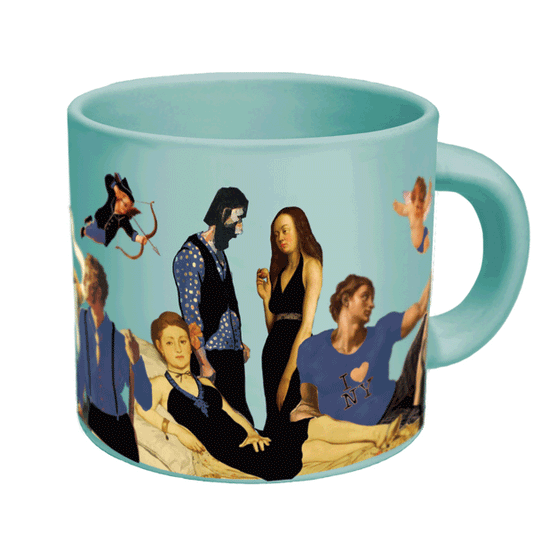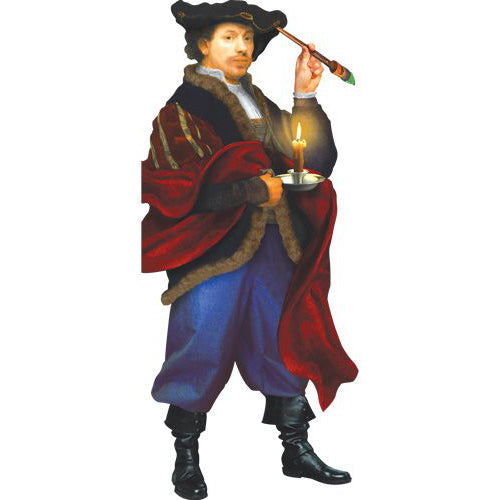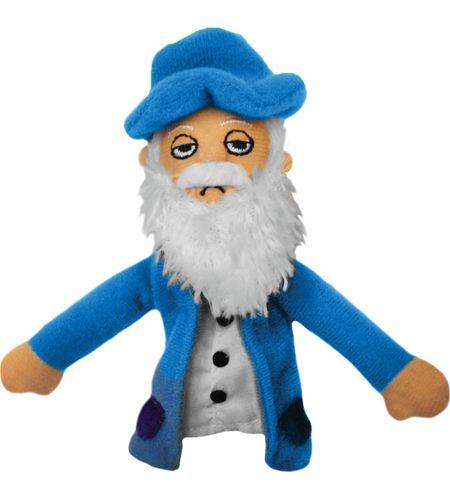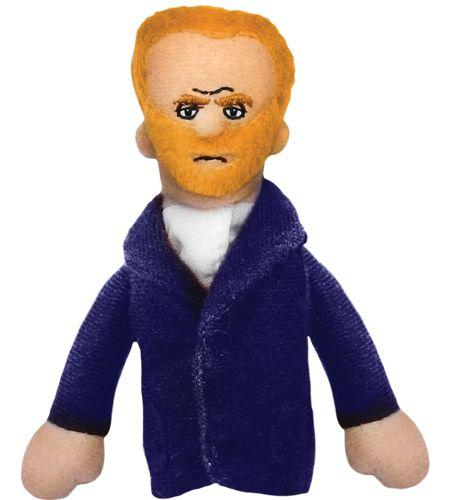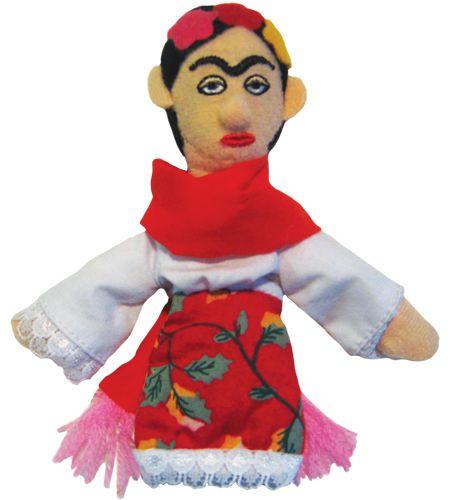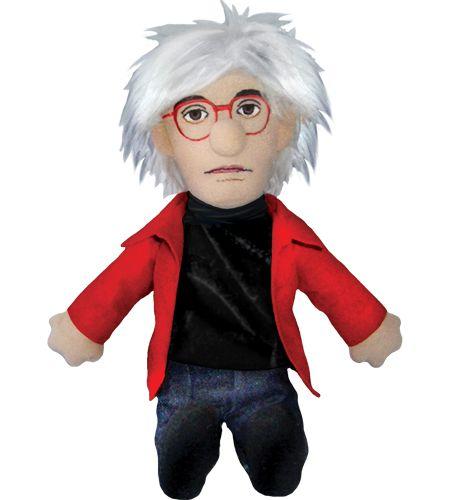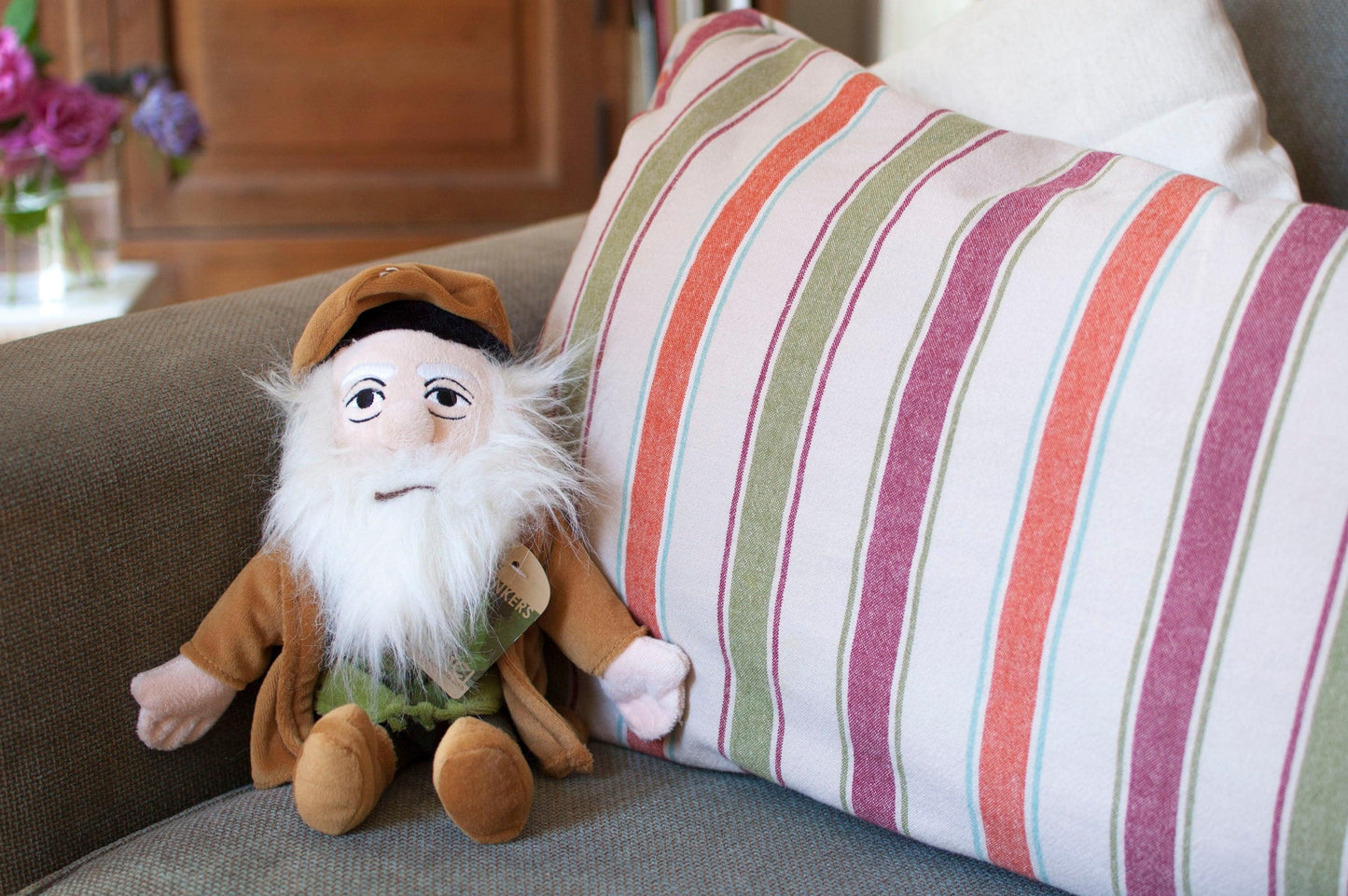Leonardo da Vinci "Little Thinker" Plush Doll
Leonardo da Vinci "Little Thinker" Plush Doll
The Unemployed Philosopher's Guild
Bajas existencias
No se pudo cargar la disponibilidad de retiro
Bring the genius of Leonardo da Vinci into your home with the "Little Thinker" plush doll! This 11" cuddly cutie is sure to spark curiosity and inspire innovation, so get ready for big ideas!
Product Details
Product Details
- Product type: Plush Toy
- Shipping Dimensions: 11.0 × 6.0 × 4.0 inches (27.9 × 15.2 × 10.2 cm)
- Shipping Weight: 1.0 lb (16.0 oz; 454 g)
- SKU: SKU: SKU010010982
- UPC: 814229001188
- Part No.: 0029
In these collections:
divertido y creativo, El gremio de filósofos desempleados, Juguetes, Leonardo da Vinci, Plush Toys, Productos con descuento, Regalos por menos de $25, Todos los productos.
About the
Leonardo da Vinci
Leonardo da Vinci (1452 — 1519) was an Italian painter, draftsman, sculptor, architect, and engineer whose skill and intelligence, perhaps more than that of any other figure, epitomized the Renaissance humanist ideal. His Last Supper (1495–98) and Mona Lisa (c. 1503–19) are among the most widely popular and influential paintings of the Renaissance. His notebooks reveal a spirit of scientific inquiry and a mechanical inventiveness that were centuries ahead of their time.
More Leonardo da Vinci
-
Adorno de vidrio: Busto de Mona Lisa
Precio habitual £11.35 GBPPrecio habitualPrecio unitario / por -
Sugar-Free Mints Tin: Mona Lisa
Precio habitual £3.76 GBPPrecio habitualPrecio unitario / por -
Leonardo da Vinci "Little Thinker" Plush Doll
Precio habitual £18.23 GBPPrecio habitualPrecio unitario / por -
Duck'oration: Mona Lisa
Precio habitual £9.86 GBPPrecio habitualPrecio unitario / por -
Botón de arte: "Hombre de Vitruvio" de da Vinci
Precio habitual £1.52 GBPPrecio habitualPrecio unitario / por -
Botón de arte: "Mona Lisa" de Da Vinci
Precio habitual £1.52 GBPPrecio habitualPrecio unitario / por -
Leonardo da Vinci: Obras maestras
Precio habitual £26.58 GBPPrecio habitualPrecio unitario / por -
Leonardo da Vinci Magnetic Finger Puppet
Precio habitual £6.80 GBPPrecio habitualPrecio unitario / por -
Pin de esmalte: El nacimiento de Venus de Botticelli
Precio habitual £7.59 GBPPrecio habitualPrecio unitario / por -
Pin de esmalte: El nacimiento de Venus de Botticelli
Precio habitual £7.59 GBPPrecio habitualPrecio unitario / por

About the Brand
The Unemployed Philosopher's Guild
The origins of the Unemployed Philosophers Guild are shrouded in mystery. Some accounts trace the Guild's birth to Athens in the latter half of the 4th century BCE. Allegedly, several lesser philosophers grew weary of the endless Socratic dialogue endemic in their trade and turned to crafting household implements and playthings. (Hence the assertions that Socrates quaffed his hemlock poison from a Guild-designed chalice, though vigorous debate surrounds the question of whether it was a "disappearing" chalice.)
Others argue that the UPG dates from the High Middle Ages, when the Philosophers Guild entered the world of commerce by selling bawdy pamphlets to pilgrims facing long lines for the restroom. Business boomed until 1211 when Pope Innocent III condemned the publications. Not surprisingly, this led to increased sales, even as half our membership was burned at the stake.
More recently, revisionist historians have pinpointed the birth of the Guild to the time it was still cool to live in New York City's Lower East Side. Two brothers turned their inner creativity and love of paying rent towards fulfilling the people's needs for finger puppets, warm slippers, coffee cups, and cracking up at stuff.
Most of the proceeds go to unemployed philosophers (and their associates). A portion also goes to some groups working on profound causes.
-
Museum Store Association Member
The Museum Store Association supports the cultural non-profit retail industry and the people who work in it.
-
Supports Non-profit Organizations
A portion of proceeds is donated to non-profit organizations. See description for details.
-
Designed in USA
Designed in the USA, with global manufacturing or assembly.
More from The Unemployed Philosopher's Guild
-
Marioneta de dedo magnética de Bob Ross
Precio habitual £6.80 GBPPrecio habitualPrecio unitario / por -
Taza Grandes desnudos en el arte
Precio habitual £15.15 GBPPrecio habitualPrecio unitario / por -
Drag Story Hour Mug
Precio habitual £15.15 GBPPrecio habitualPrecio unitario / por -
Tarjeta de notas troquelada de Rembrandt con pegatinas
Precio habitual £3.00 GBPPrecio habitualPrecio unitario / por -
Marioneta de dedo magnética de Claude Monet
Precio habitual £6.80 GBPPrecio habitualPrecio unitario / por -
Marioneta de dedo magnética de Vincent van Gogh
Precio habitual £6.80 GBPPrecio habitualPrecio unitario / por -
Marioneta de dedo magnética Frida Kahlo
Precio habitual £6.80 GBPPrecio habitualPrecio unitario / por -
Muñeco de peluche Andy Warhol "Pequeño pensador"
Precio habitual £18.23 GBPPrecio habitualPrecio unitario / por -
Bob Ross Magnetic Dress Up Play Set
Precio habitual £12.11 GBPPrecio habitualPrecio unitario / por -
Frida Kahlo Magnetic Dress Up Play Set
Precio habitual £12.11 GBPPrecio habitualPrecio unitario / por
-
¡Gracias!
Cada compra apoya la misión y los programas del Museo Chrysler. ¡Gracias!
-
Membership has its benefits!
Los miembros inician sesión e ingresan el código de descuento MEMBER10 al finalizar la compra para aplicar su 10% de descuento para miembros.




